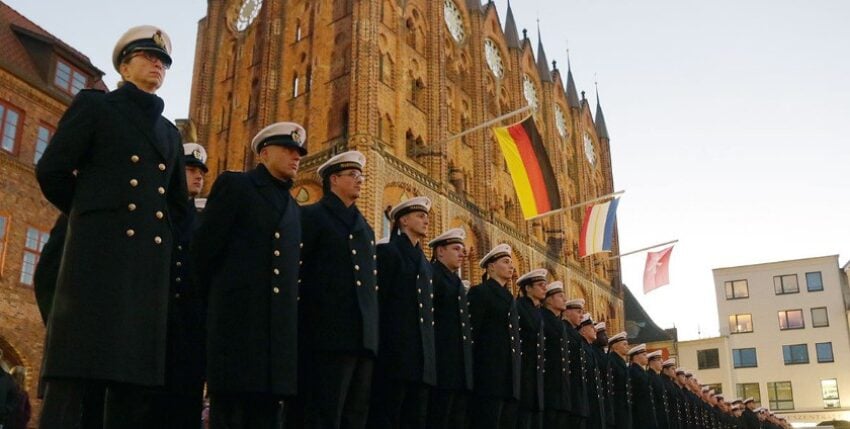After the end of the Cold War, compulsory military service was seen as an obsolete model. But the new era requires new solutions.
Since 24 February 2022, compulsory military service, which was suspended in 2011, has suddenly been on everyone's lips again. At the time, German politicians were unanimous in their view that a defence war in Europe was not to be expected in the foreseeable future. Rather, the main task of the armed forces was to secure peace around the world.
In addition, with a shrinking armed forces, the only way to ensure fairness in military service was to shorten the service to such an extent that it hardly allowed for any meaningful training. Conscripts no longer appeared to be deployable in modern wars. As a result, not only opponents of conscription but also Germany's allies urged the end of compulsory military service. It was also hoped that the Bundeswehr would make further financial savings. Smaller and more professional was the motto, meaning above all cheaper.
All of this appears in a different light after the Russian invasion of Ukraine. The war lasted much longer and claimed more casualties than expected. Both sides are estimated to have lost more than 100,000 soldiers in the first year of the war, who have to be replaced. On the Ukrainian side, many reservists who had previously been trained as conscripts were deployed and were able to compensate for the losses with qualified personnel.
This shows that major wars cannot be fought without personnel reserves, and that conscripts are proving their worth. This is not just about reservists for homeland defence, but also for the fighting force, which needs to be replenished.
None of the European volunteer forces would be able to mobilise reservists to the extent that is currently happening in the Ukraine war. After a short time, they would all be depleted. This realisation has revived the conscription debate.
The dilemma of defence justice
The main problem in Germany is the fairness of military service. According to the principle of universal conscription, two thirds of young men must be conscripted for service according to the Federal Constitutional Court. The situation in which a number of conscripts are needed for Germany's military defence, but not as many as required for military justice, is not provided for in the Basic Law. This dilemma will become even greater if conscription is reactivated and extended to women.
A general compulsory service is being discussed as a solution. However, the European Convention on Human Rights poses a major hurdle here. Article 4 of the Convention prohibits forced labour with a few exceptions, including compulsory military service, the corresponding civilian service and services "in the course of normal civic duties".
However, whether the latter includes services in hospitals, in the social system or in environmental protection, as advocates of compulsory service argue, seems doubtful. It is therefore by no means certain that general compulsory service will withstand a trial before the European Court of Human Rights. In the end, it could prove to be a mistake. And one thing is also true: nothing would be as unjust as conscripting people for the sole purpose of ensuring that they are not better off than others.
Sweden and Norway take a different approach. Their legislation does not require general conscription. Only as many soldiers are called up as the armed forces need. In Sweden, for example, just 4,000 call-ups were planned for 2017.
What could this look like in Germany? Not as a blueprint, but as a rough numerical framework, consider the Bundeswehr 20 years ago. In 2003, there were 190,000 professional and regular soldiers (181,000 today), 24,100 volunteers (12,500) and 69,900 conscripts, totalling around 284,000 (193,500) soldiers.
The Scandinavian solution is ideal for armed forces of this size. Introducing it in Germany primarily requires political will. However, if the Basic Law has to be amended anyway when reactivating compulsory military service in order to extend it to women, the requirement for general compulsory military service can be cancelled at the same time.
What is permitted under the rule of law and socially accepted in countries such as Norway and Sweden, which often serve as political and social role models, should also be possible in Germany.
Karsten Schneider







